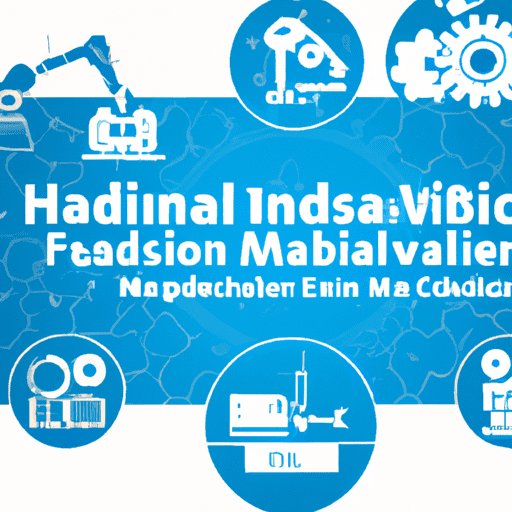Halal manufacturing solutions are revolutionizing the industry and the way we look at manufacturing. With the increasing demand for halal products, manufacturers are looking for ways to produce halal products without the need for costly certification processes. Halal manufacturing solutions provide the perfect solution to this problem. They help manufacturers to produce halal products in a more cost-effective and efficient manner by incorporating halal standards into the manufacturing process.
Halal manufacturing is not just limited to food products; it also covers a wide range of products including pharmaceuticals, cosmetics, and personal care items. The halal industry has been growing rapidly in recent years, and it is expected to continue growing at a steady pace. The demand for halal products is not just limited to Muslim consumers, but also non-Muslim consumers who are looking for ethical and sustainable products.
Halal manufacturing solutions provide a comprehensive framework to manufacturers to ensure their products comply with halal standards. The halal certification process can be complicated and costly, and there is always a risk of non-compliance. With halal manufacturing solutions, manufacturers can incorporate halal standards into their production process, reducing the need for certification and ensuring compliance at every step of the way.
Halal manufacturing solutions incorporate a number of features that make halal production easier and more efficient. These include:
1. Halal Ingredient Sourcing – Halal manufacturing solutions help manufacturers to source halal ingredients from certified halal suppliers. This ensures that the entire supply chain is halal compliant, and there is no risk of contamination from non-halal products.
2. Halal Production Processes – Halal manufacturing solutions provide a framework for halal production, including guidelines for processing, handling, and packaging. This ensures that the entire production process is halal compliant, from start to finish.
3. Halal Certification – Halal manufacturing solutions provide certification for halal products, with standards that are recognized internationally. This ensures that manufacturers can access global markets and meet the demands of their customers.
4. Quality Management System – A quality management system (QMS) is an essential element of halal manufacturing solutions. It ensures that the manufacturing process is monitored and all the required controls in place to produce the product of consistent quality.
By incorporating halal manufacturing solutions into their operations, manufacturers can improve their productivity, reduce their costs, and increase their profitability. These benefits are not just limited to halal products but extend to all aspects of manufacturing operations.
1. Productivity – By incorporating halal standards into the production process, manufacturers can improve their productivity as there are fewer disruptions and mistakes to address. This results in a faster and more efficient production process.
2. Cost-effectiveness – Halal manufacturing solutions provide a cost-effective way to produce halal products, reducing the need for costly certification processes. This helps to reduce the cost of production while ensuring compliance with halal standards.
3. Brand image – By adopting halal manufacturing solutions, manufacturers can improve their brand image and reputation. They can demonstrate to customers that they are committed to ethical and sustainable practices, which can lead to increased customer loyalty.
4. Access to global markets – Halal certification is recognized internationally, providing manufacturers with access to global markets. This enables manufacturers to expand their customer base and increase their revenue.
Halal manufacturing solutions are not just limited to halal compliance; they also provide a framework for ethical manufacturing practices. By incorporating sustainability and ethical practices into their operations, manufacturers can demonstrate their commitment to sustainable practices, reduce their environmental impact, and improve their social responsibility.
Halal manufacturing solutions also play an important role in addressing food safety concerns. Halal certification requires manufacturers to follow strict guidelines for hygiene and food safety, ensuring that products are free from contamination. This is particularly important for consumers who have food allergies or intolerances.
In conclusion, halal manufacturing solutions are revolutionizing the industry by providing a comprehensive framework for halal compliance, ethical manufacturing practices, and sustainability. These solutions help manufacturers to produce halal products more efficiently and cost-effectively, while also improving their brand image, increasing their access to global markets, and reducing their environmental impact. With the demand for halal products on the rise, manufacturers can benefit from incorporating halal manufacturing solutions into their operations.


